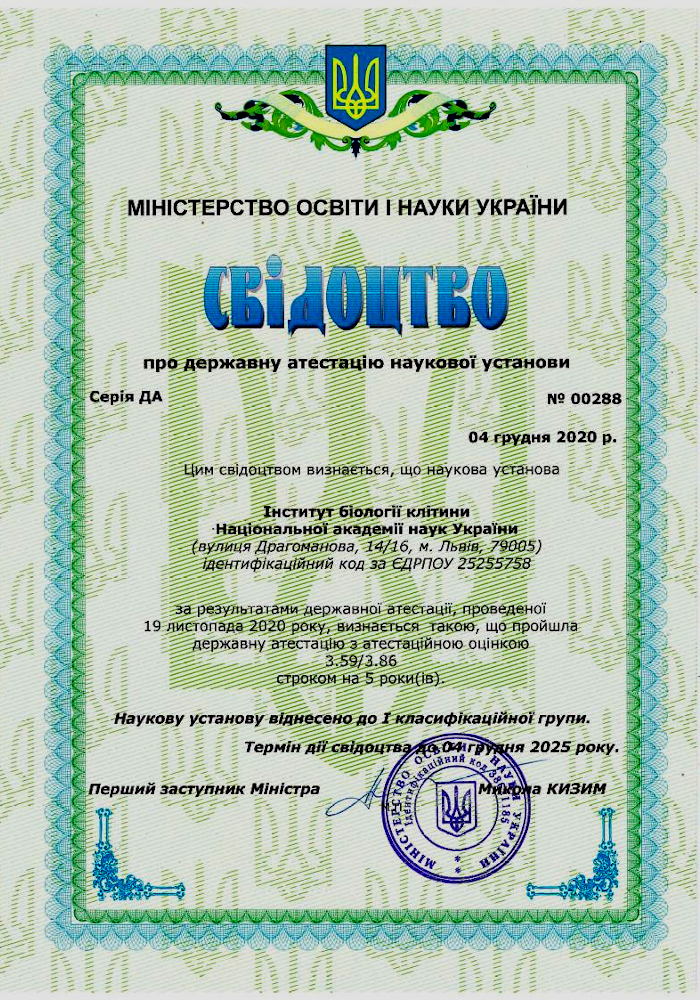Institute of Cell Biology National Academy of Sciences of Ukraine

Institute of Cell Biology National Academy of Sciences of Ukraine, was established on the basis of the Division of Cell Regulatory Systems of O.V. Palladin Institute of Biochemistry, National Academy of Sciences of Ukraine according to the Decree "On the establishment of the Institute of Cell Biology in Lviv" of the Cabinet of Ministers of Ukraine, N1123, July 14, 2000. Division of Cell Regulatory Systems of O.V. Palladin Institute of Biochemistry was founded in 1969. Professor Stepan J. Kusen' became its first director (from 1969 to 1995). Professor Rostislav S. Stoika was director of this Division from 1995 to 2000. Professor Andriy А. Sibirny was nominated by the President of NAS of Ukraine as the first Director of the Institute of Cell Biology. Member of NAS of Ukraine Andriy A. Sibirny was re-elected as Director for five years in 2012.
The Institute of Cell Biology is a scientific institution well known in Ukraine and abroad, conducting first priority fundamental and applied research in the field of modern cell biology, molecular biology, microbiology, biochemistry, genetics and biotechnology. At present the Institute employs 67 specialists, including 12 doctors of sciences (Habilitation Doctors) and 23 candidates of sciences (PhDs). During the last 7 years our scientists have published 41 monographs and chapters in monographs, 273 scientific articles (including 148 articles in the international journals – a total impact factor = 621,9), 6 university textbooks and 9 manuals for higher school students, received 24 patents for inventions and utility models (including 4 international patents). During the last 7 years specialists of our Institute completed 23 international scientific projects, 52 international grants for young scientists and many domestic scientific projects.
Institute of Cell Biology is a founder of the Ukrainian Society for Cell Biology (USCB), established in 2004. USCB is registered at the legal address of the Institute.
A specialized Academic Council D 35.246.01 evaluates theses applied for the Ph.D. and Doctor of Science degrees in the following areas: 03.00.07 – Microbiology and 03.00.11 – Сytology, cell biology, histology.